With seven titles, in as many finals, Chen Yufei marked her breakthrough season by completing an ascent to the No.1 ranking in what was the final match of the 2019 BWF World Tour calendar.
By Bikash Mohapatra. Photos: Badmintonphoto
It was an open field. Unlike in the men’s singles discipline in 2019, palpably a one-man show with Japan’s Kento Momota winning it all, the women’s equivalent offered more variety with no single player dominating the show as such.
Olympic champion Carolina Marin suffered an anterior cruciate ligament injury in January and was consequently out of action for close to eight months, thereby missing a major part of the season, including the opportunity to defend her world title. Though the Spaniard marked her comeback by defending her title in China (a Super 1000 tournament) she didn’t have enough time to recover lost ground.
Pusarla Venkata Sindhu took advantage of Marin’s absence, put on a stellar show and won the title in Basel – in what was her third appearance in a World Championship final, in the process becoming the first ever World Champion from India, in any badminton discipline. On the flip side, if one takes her triumph in Switzerland out of the equation, Sindhu’s overall performance in the 2019 season was a colossal disappointment.
In fact, the dip in the level of her performance post that tournament in August was so drastic that the usually generous Indian media – that had initially pointed at the crammed calendar and blamed the Badminton World Federation (BWF) for excessive workload on players – ran out of excuses in the last two months.
As for the other players who have held the #1 spot in recent years, Tai Tzu Ying had a very average year by her usual lofty standards. Ratchanok Intanon was in the final of 5 of the 7 Super 500 events, winning 2 of them, but that was just about it. Since Saina Nehwal is on a perennial decline, the less said the better.
The two Japanese stars…suffice to say they were good without being great. Akane Yamaguchi to her credit converted the few chances that she created, in the process winning the Asian Championships in April and back-to-back titles in July, but couldn’t replicate that form at the World Championships, where she lost in the second round.
Meanwhile, former World Champion Nozomi Okuhara suffered from what could be dubbed the “Sindhu Syndrome” – till late last year the Indian reached repeated finals only to end up with the wooden spoon.
The 24-year-old Japanese shuttler lost all the six finals she contested in 2019, five on the Tour as well as the most lopsided World Championship final in the history of the rally-point system (until it was surpassed by the men’s singles final immediately thereafter). Add the BWF World Tour Finals of 2018 – where she lost in the decider to Sindhu, and what you get is the fact that the last seven occasions she has made it to the final, Okuhara has failed to turn her overall success in the tournament into something tangible. Sindhu seems to have passed on the ‘finals’ curse to Okuhara.
The multitude of erratic performances and irregular results meant the stage was set for a star to be born. And there emerged a player who was the most consistent in a season of inconsistencies. Amid the many ups and downs, she was the only constant.
From winning her first senior title at just 18 years of age (in Macau) to being named as 2017’s Eddy Choong Most Promising Player of the Year, Chen Yufei slowly but surely made her transition from juniors to the senior level. Here was a player who was an apt combination of natural talent and hard work.
She showcased glimpses of her potential in the second half of 2018, making it to the final of successive BWF World Tour Super 1000 tournaments in Indonesia and China before highlighting that successful run with a first major title, at the Fuzhou China Open Super 750.
However, in more ways than one it was 2019 that turned out to be the Hangzhou native’s breakthrough year.
Having progressed to the final of the All England Open Super 1000 rather unnoticed, Chen not only let go of the mental block that she had not beaten her opponent in 11 meetings but also showed scant respect to the fact that she was facing the two-time defending champion. She beat Tai Tzu Ying in straight games to win the prestigious title, and in the process became the first women’s singles champion from China since Wang Shixian did it back in 2014.
While many players would celebrate a title of such magnitude and a take a few weeks off, Chen was back on court a couple of days later, going on to win the Swiss Open Super 300 – thereby getting a taste of the satisfaction of winning back-to-back titles. A couple of months later, the 21-year-old helped her country win back the Sudirman Cup.
In the second half of the year, Chen was consistency personified. From winning the Super 500 tournaments in Thailand and Hong Kong to successfully defending her title at the Fuzhou China Open to semi-final appearances at the big ticket tournaments in Indonesia, Japan, the World Championships, China and Denmark the young player strung together a series of good results, and in the process consolidated her ranking.
At the BWF World Tour Finals in Guangzhou, Chen had a chance to secure the top spot. She won all three of her group matches and then took a surprisingly one-sided semi-final against Akane Yamaguchi to get closer to her goal.
The stage was set for the final match of the 2019 BWF season. The stakes were palpably high. Standing between Chen and the title, and the top ranking, was a familiar foe.
Tai Tzu Ying had put the All England disappointment behind her and effected another reversal of fortunes to get the better of her Chinese opponent on three intervening occasions – at Kuala Lumpur, Changzhou and Odense. Not to forget she had also won the season-ending tournament on two previous occasions. It was therefore not surprising that she had the upper hand in the opening game and won quite comfortably 21-12.
However, it was Chen Yufei’s year and she was not to be denied. She recovered to take the second game 21-12 and held on to pocket the third, thereby scoring only her second win (in 16 matches) against Tai – both of these coming in the finals of flagship tournaments.
It was her seventh title of the year, in as many finals. More importantly, it was the culmination of a consistent run of results, one that completed her ascent to the pinnacle of the world rankings. Chen is the first Chinese woman to be ranked No. 1 in the singles discipline since Li Xuerui vacated the spot in June 2015.
The usually formidable Chinese assembly line had suffered a recession of sorts in recent years following the retirements of the likes of Wang Shixian, Wang Xin, Wang Yihan and then the injury hiatus and now retirement of Li Xuerui.
All that has allowed a whole bunch of players like Marin, Okuhara, Sindhu, Tai and Yamaguchi to fill up the resultant void and take over the mantle from the game’s most successful nation. Chen’s overall performance and the consistency of results over the last 18 months or so is perhaps the first step towards a Chinese resurgence.
![Chen, the only constant With seven titles, in as many finals, Chen Yufei marked her breakthrough season by completing an ascent to the No.1 ranking in what was the final match of the 2019 […]](http://www.badzine.net/wp-content/uploads/ngg_featured/20191117_1512_HongKongOpen2019_BPRS4056_rotator.jpg)
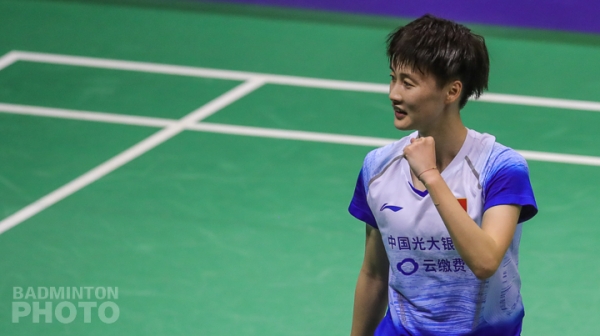
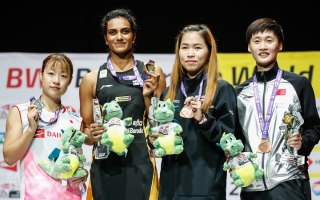
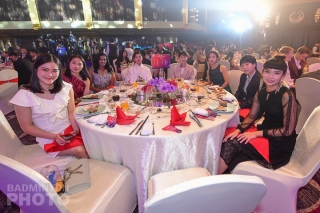
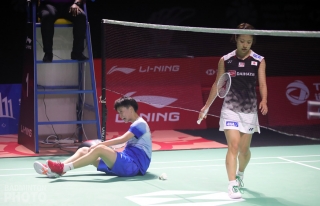
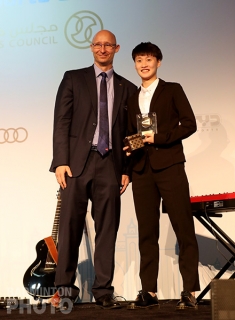

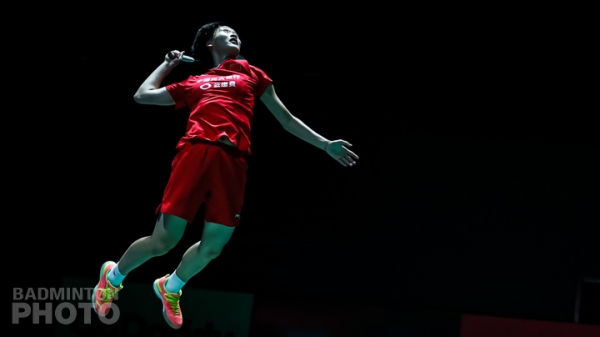
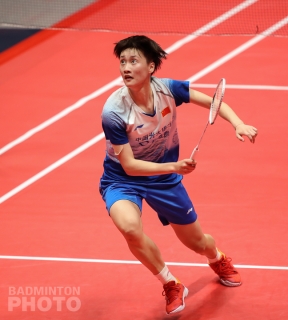
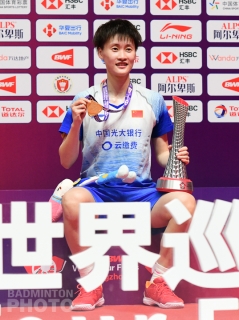
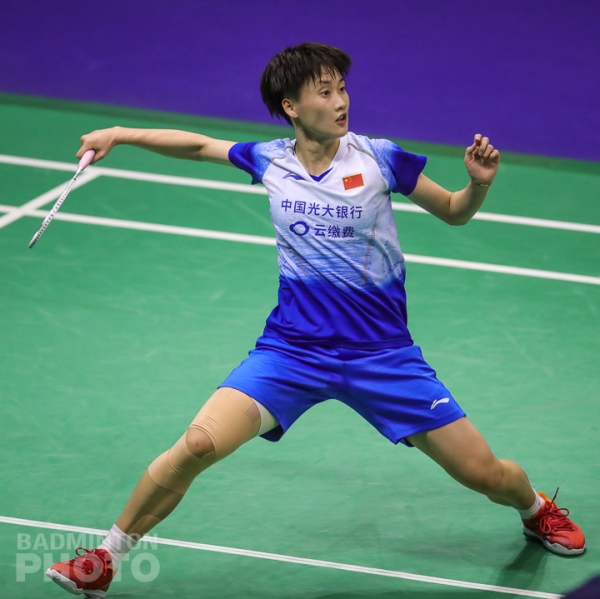

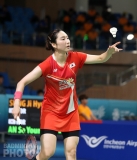
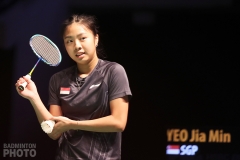
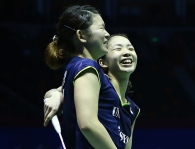
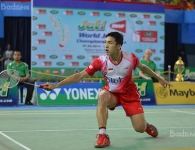
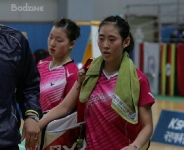

Leave a Reply